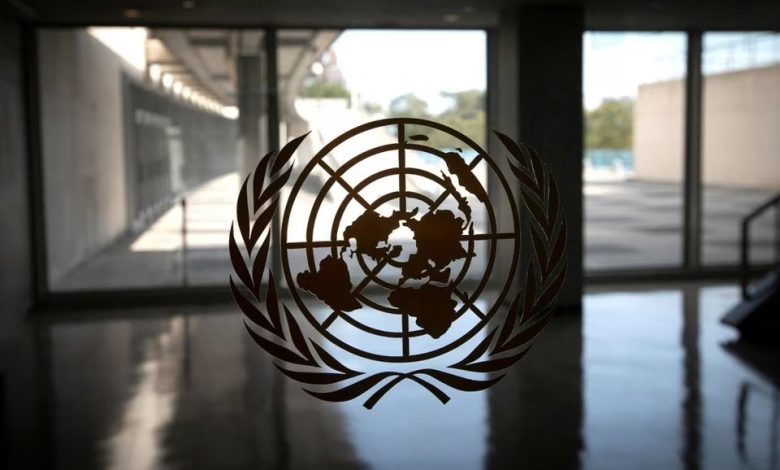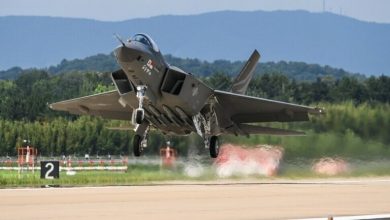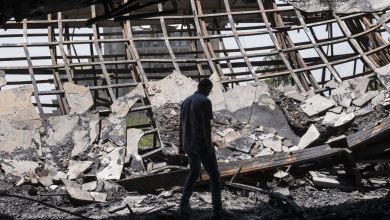Analysis: Reforming the UN in the era of great power competition

At the upcoming U.N. summit, Türkiye is likely to be the sole advocate for reform, with Erdoğan emphasizing the urgent necessity for changes to address the global system’s legitimacy crisis and to prevent future issues.
In a world marked by escalating global power struggles and growing uncertainty, the United Nations, as the foremost international organization, will once again take center stage at the upcoming General Assembly. Unsurprisingly, Russian President Vladimir Putin and Chinese President Xi Jinping will abstain from attending, as has been their custom during the annual New York gathering each September.
Recent weeks have vividly illustrated how geopolitical competition between countries unfolds through international and regional institutions. Russia’s hosting of the Russia-Africa summit in Moscow aimed to forge new alliances amid the ongoing, unjust war in which it stands isolated. Conversely, China sent a strong message to the United States by extending invitations to new member countries to join BRICS (Brazil, Russia, India, China and South Africa). The recent G-20 summit witnessed India launching a strategic corridor project with support from the U.S. and Europe, known as the India-Arab-Europe Corridor (IMEC), as a counter to China’s Silk Road initiative.
As we approach the U.N. General Assembly, influential global players have meticulously executed their strategic moves, with their leaders now preparing to convey diplomatic messages on the world stage. The U.N. will strive to uphold its traditional mission amid the shadow of geopolitical maneuvering and competition. However, given its current structure, it faces significant challenges in doing so. The U.N. finds itself ensnared in a profound crisis characterized by issues of legitimacy, ineffectiveness and a lack of accountability.
Founded shortly after World War II, the U.N. initially advocated an approach that drew lessons from the past. It linked the principle of collective security to global stability, aiming to establish world peace by minimizing conflicts and establishing a system emphasizing equilibrium among the victors. The veto power granted to the Security Council ostensibly aimed to prevent global conflicts, protect victims from aggressors and facilitate the maintenance of peace through preventive measures. However, global justice remained elusive for the U.N. In reality, the veto power bestowed upon the Security Council’s permanent members transformed into a mechanism that prioritized the interests of the “big five” over justice, efficiency and peaceful conflict resolution.
During the Cold War, the U.N. operated to safeguard the strategic interests of the five permanent members of the global order. While they avoided confrontation, they often favored the strong at the expense of the weak as long as it suited their interests. The U.N.’s legal framework during this period accommodated policies such as Israel’s occupation of Palestine, U.S. support for counter-guerrilla efforts in Latin America, the Vietnam War, and numerous other examples that were framed as stabilizing the so-called larger international system.
Following the Cold War’s end, the U.N. assumed a more prominent role in global governance, but it failed to evolve in tandem with the shifting international landscape. In the U.S.-led global order, the U.N. gradually transitioned from a strategic institution to a tactical “apparatus.” While it played a prominent role in humanitarian interventions, it proved ineffective in curbing ethnic cleansing in the Balkans and Africa. The fact that NATO, rather than the U.N., intervened in Kosovo to prevent larger-scale massacres underscored the dysfunctionality of the U.N.’s veto system.
Deep crisis of the U.N.
The global governance crisis, triggered by post-Cold War geopolitical, political, security, economic and social upheavals, exposed the U.N.’s failures. Today, the U.N. confronts a more profound crisis than ever before in its history. This crisis directly challenges the organization’s founding principles and raises fundamental questions about its legitimacy.
The legitimacy crisis results from the U.N.’s continued adherence to a quintet structure despite significant geopolitical shifts. The evolving post-Cold War international system is characterized by multipolarity, where rising powers refuse to defer to the decisions of the five countries. This demonstrates that the U.N. falls short of reflecting the current geopolitical power balance.
Simultaneously, the U.N. grapples with a profound representation crisis. It remains culturally monocultural and exhibits a Western-centric character. Its ineffectiveness exacerbates these problems and renders its current form unsustainable. The U.N. often fails to take timely action in international crises, allowing them to worsen and deferring resolutions to narrow interests. Transparency issues further compound the U.N.’s legitimacy problems, as decision-making processes and aligning decisions with the nature of crises erode its reputation as a transparent organization. Such a structure not only struggles to provide stability in the global system but also prompts states to develop their mechanisms for crisis resolution.
The profound upheavals in the global system, particularly after the COVID-19 pandemic, the intensifying competition between the U.S. and China, and Russia’s incursion into Ukraine signal an impending transformation in international politics not seen since the Cold War. This transformation portends a recalibration of power distribution and a shift in the power center from the West to the East. Two centuries of Western geopolitical dominance may yield a new era of Eastern geopolitical equality. In this emerging era, marked by radical changes in power distribution and geopolitical order, the reform of the U.N. takes precedence, surpassing all other priorities.
Failure to account for the global power distribution and to devise effective and equitable solutions to global problems in a timely manner will deepen the U.N.’s legitimacy crisis. This crisis could foster the emergence of alternative norms within the existing international legal order and the development of a parallel legal framework. Decisions made by alternative regional blocs in politics, economics and security are already supplanting U.N.-led norms.
Moreover, the establishment of alternative regional organizations, rather than relying on the U.N. as a supranational entity, could further undermine the U.N.’s effectiveness and lead to its eventual dissolution.
At the forthcoming U.N. summit, it is likely that Türkiye will not be the only actor to raise the issue of reform. President Recep Tayyip Erdoğan will emphasize the urgent need for U.N. reform to solve the global system’s legitimacy crisis. As President Erdoğan has repeatedly mentioned, the U.N. must be reformed as soon as possible to prevent further problems.





